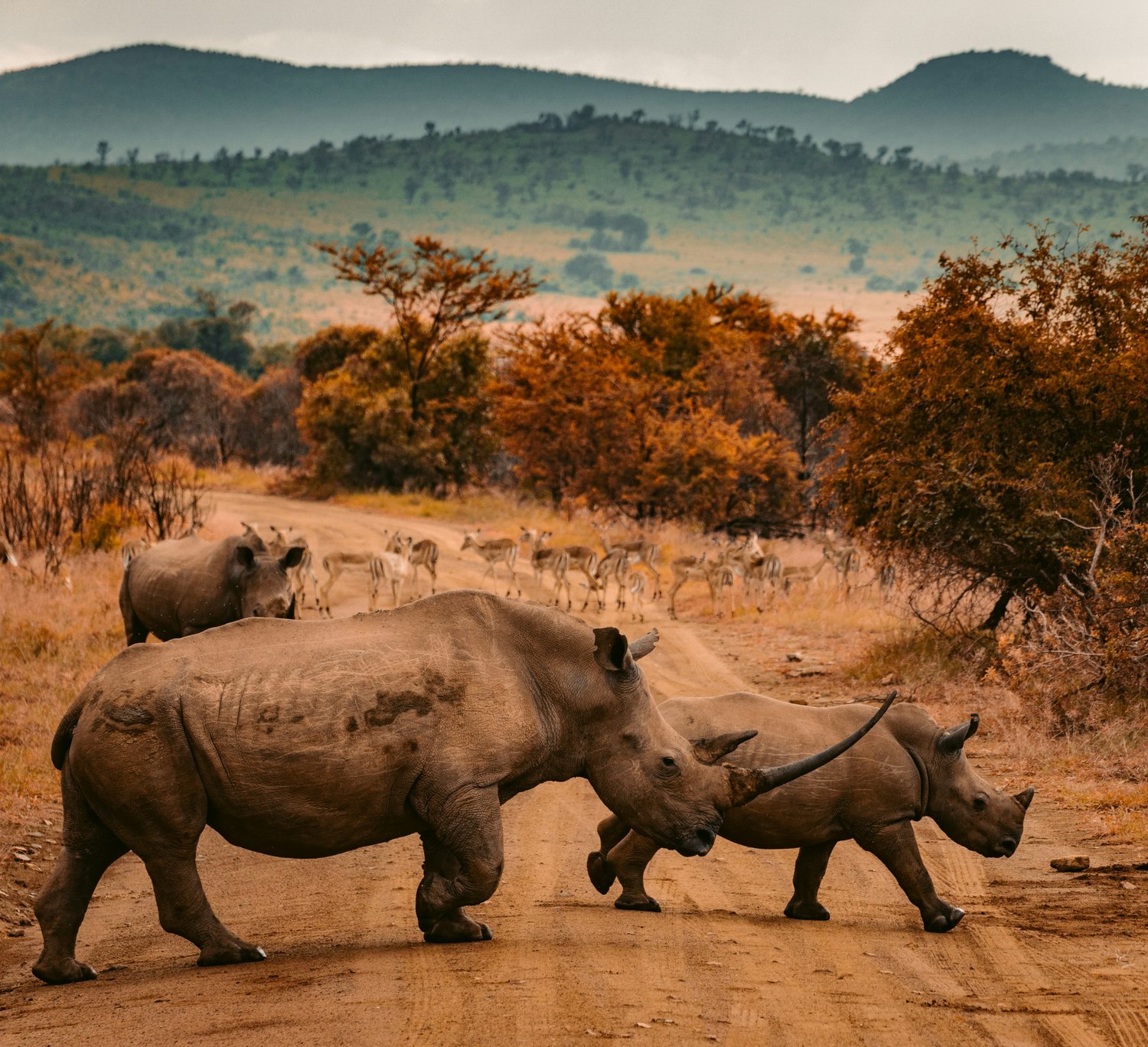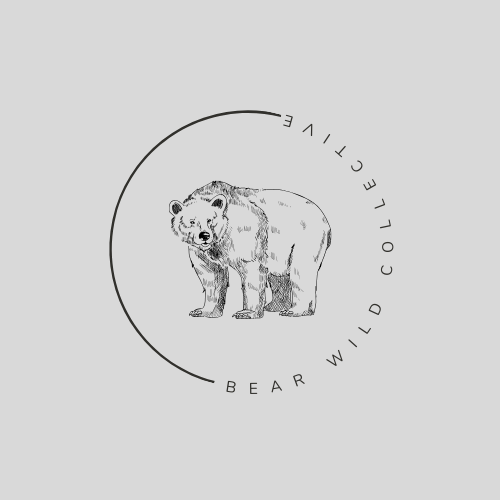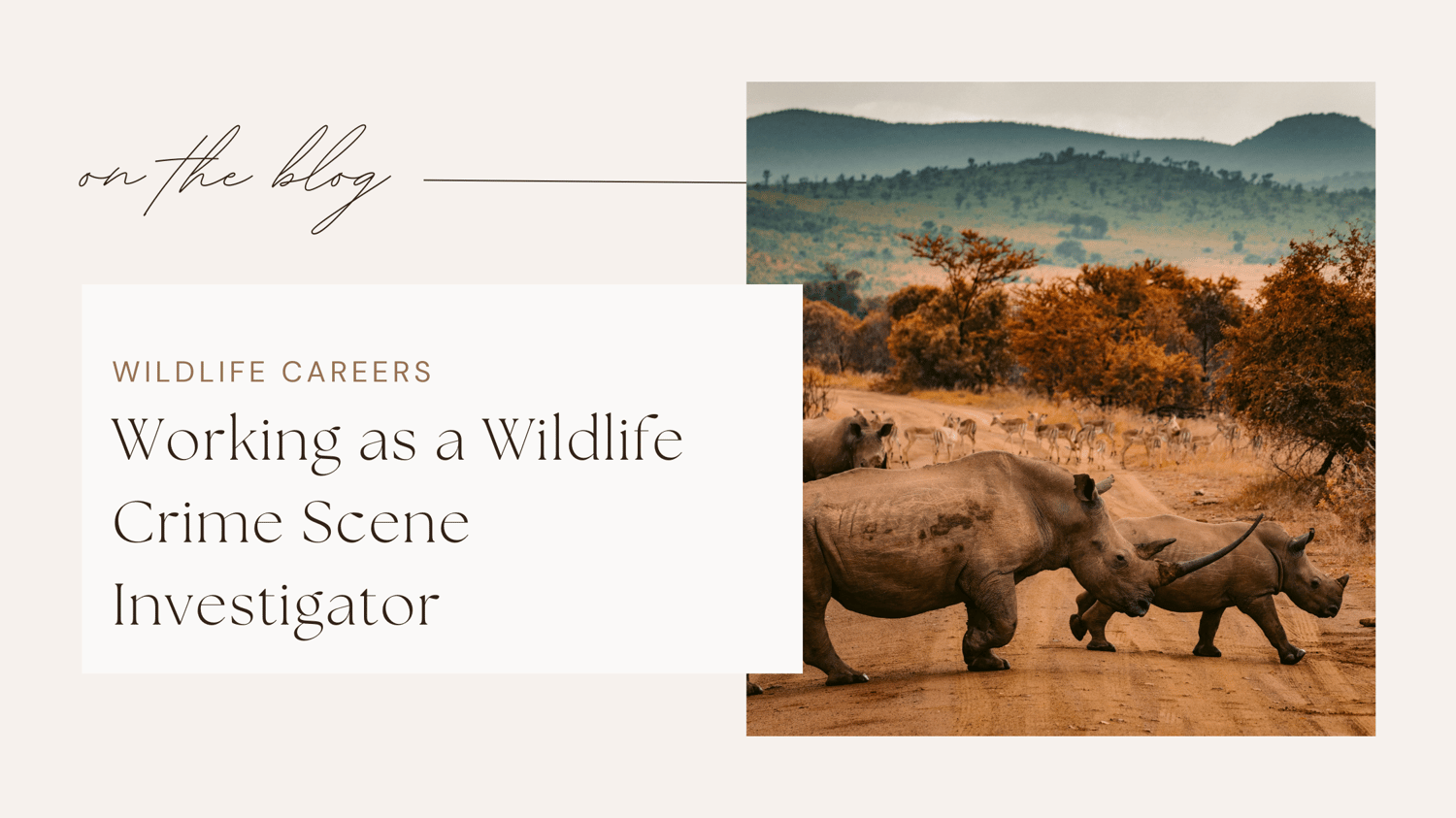Wildlife Crime Scene Investigators (CSI) play a critical role in the fight against illegal wildlife crime, including poaching, habitat destruction, and trafficking of endangered species. These specialists bring scientific rigor to crime scenes, collecting and analysing evidence to help law enforcement agencies build strong cases against offenders. In a world where wildlife crime threatens biodiversity, their work is essential to protecting vulnerable species and ecosystems.
To explore more unique career options in the wildlife sector take a look at our Wildlife Career Accelerator and Wildlife Work Directory, or read more about wildlife crime scene investigators below.

[Credit Red Charlie]
What Does a Wildlife CSI Do?
A Wildlife Crime Scene Investigator combines skills in forensic science, conservation biology, and criminal investigation to address crimes involving wildlife. They are often called to scenes where illegal activities have occurred, such as poaching sites, trafficking hubs, or areas of environmental destruction. Their responsibilities include:
1. Collecting Evidence
Wildlife CSIs carefully document the scene and collect evidence, which can include:
- Animal remains (e.g., tusks, scales, skins).
- DNA samples from carcasses or bloodstains.
- Traps, weapons, or bullets used by poachers.
- Soil, footprints, or other environmental clues.
2. Analysing Evidence
After collecting evidence, Wildlife CSIs work with laboratories to analyse it. For example:
- DNA analysis identifies species and links poached animals to a specific crime.
- Ballistics tests match weapons to bullets found at the scene.
- Trace evidence, such as hair or fibers, can connect suspects to wildlife crimes.
3. Collaborating with Law Enforcement
Wildlife CSIs work closely with law enforcement agencies, providing scientific expertise to support investigations and prosecutions. They may testify in court as expert witnesses, presenting evidence to prove criminal activity and ensure justice.
4. Educating Stakeholders
Wildlife CSIs also educate park rangers, police, and local communities about the importance of preserving crime scenes and reporting illegal activities, ensuring evidence is preserved for investigation.
What skills and qualifications are useful for work as a wildlife CSI?
- Forensic Science Knowledge: Skills in collecting and analysing physical evidence.
- Ecology and Biology Expertise: Understanding of wildlife species and ecosystems.
- Criminal Investigation Training: Knowledge of investigative procedures and legal protocols.
- Attention to Detail: Precision is vital to avoid contaminating or overlooking evidence.
- Fieldwork Preparedness: CSIs often work in challenging conditions, such as remote forests or protected reserves.
A degree in forensic science, conservation biology, or environmental science is common in this field. Many professionals gain additional training in wildlife law enforcement or crime scene processing.
Who employs wildlife CSIs?
Wildlife CSIs are employed by organizations and agencies dedicated to combating wildlife crime, including:
1. Governmental Agencies
- U.S. Fish and Wildlife Service: Operates the National Fish and Wildlife Forensics Laboratory, the world’s only lab dedicated exclusively to wildlife crime.
- Interpol: Works on transnational wildlife crime investigations.
- Environmental Protection Agencies: Some national and local agencies employ specialists to investigate environmental crimes.
2. NGOs
- NGOs such as World Wildlife Fund (WWF), Born Free, and Wildlife Conservation Society (WCS) collaborate with governments and support wildlife crime investigations, as well as protecting wildlife through research, advocacy, and crime prevention programs.
3. Law Enforcement and Border Security
- Agencies like customs departments and border patrol hire wildlife CSIs to address smuggling of illegal animal products.
4. Academic and Research Institutions
- Some universities and research labs employ forensic scientists to advance techniques in combating wildlife crime, such as creating ways to test shipments of wildlife products for what species they came from. Some newer techniques can even tell if wild animal products are from farmed or free living wild animals!
5. International Wildlife Bodies
- CITES (Convention on International Trade in Endangered Species) collaborates with specialists and border patrols to regulate and prevent illegal trade.
Wildlife CSIs are hugely important for bridging the gap between conservation professionals and law enforcement, ensuring that illegal activities against nature do not go unchecked. Their work leads to stronger prosecutions, deters future crimes, and helps protect ecosystems and endangered species from irreversible harm. For those passionate about wildlife and justice, this career offers a unique opportunity to make a tangible impact in the fight against wildlife crime, combining science, law, and conservation to defend the natural world.
To explore more unique career options in the wildlife sector, take a look at our Wildlife Career Accelerator and Wildlife Work Directory.



